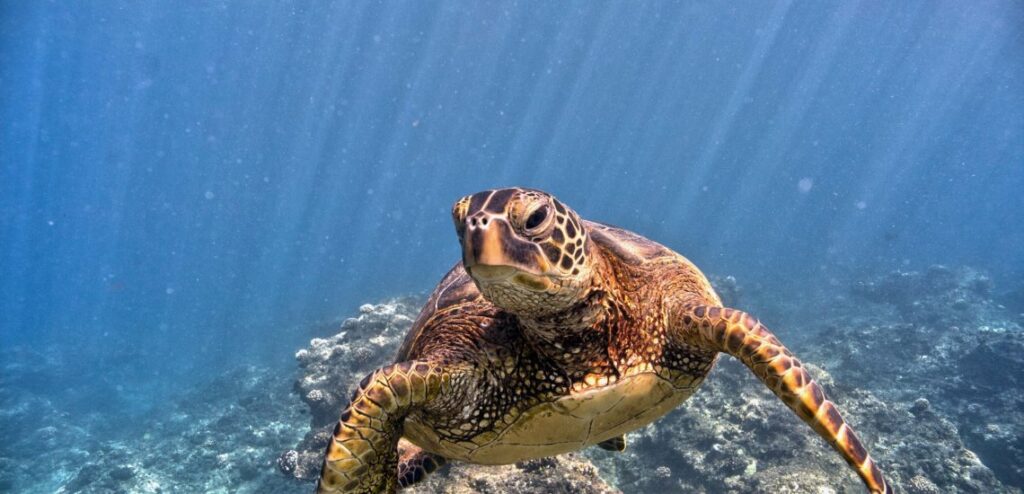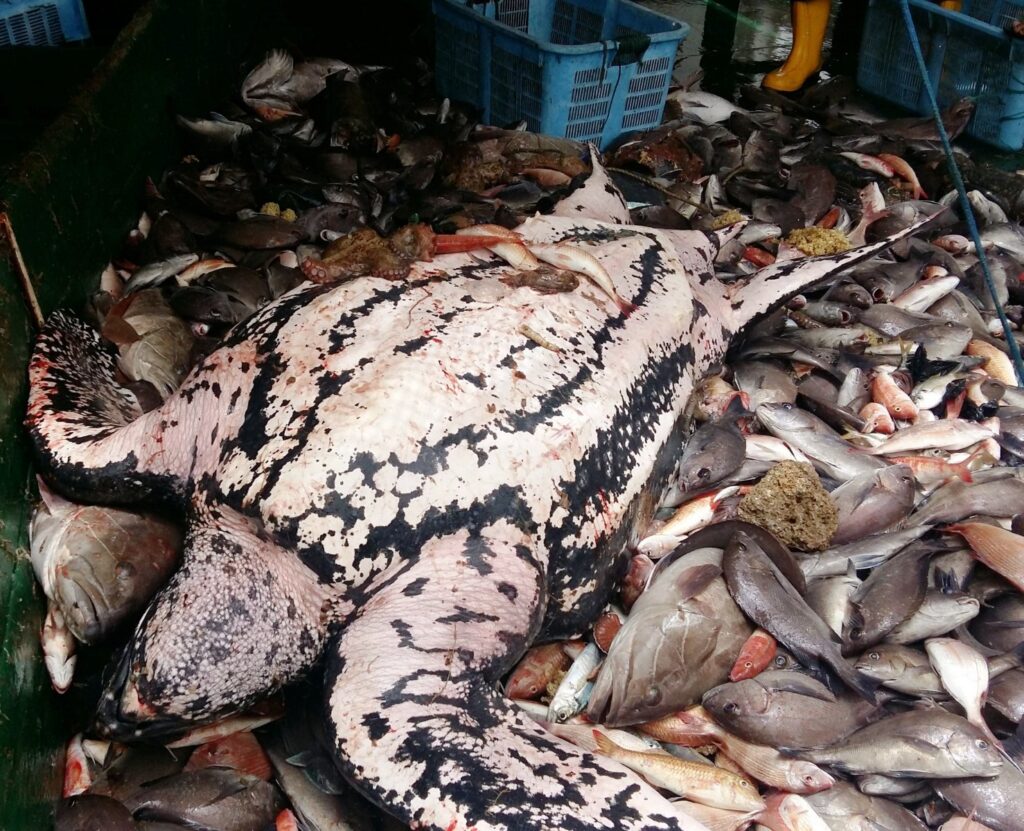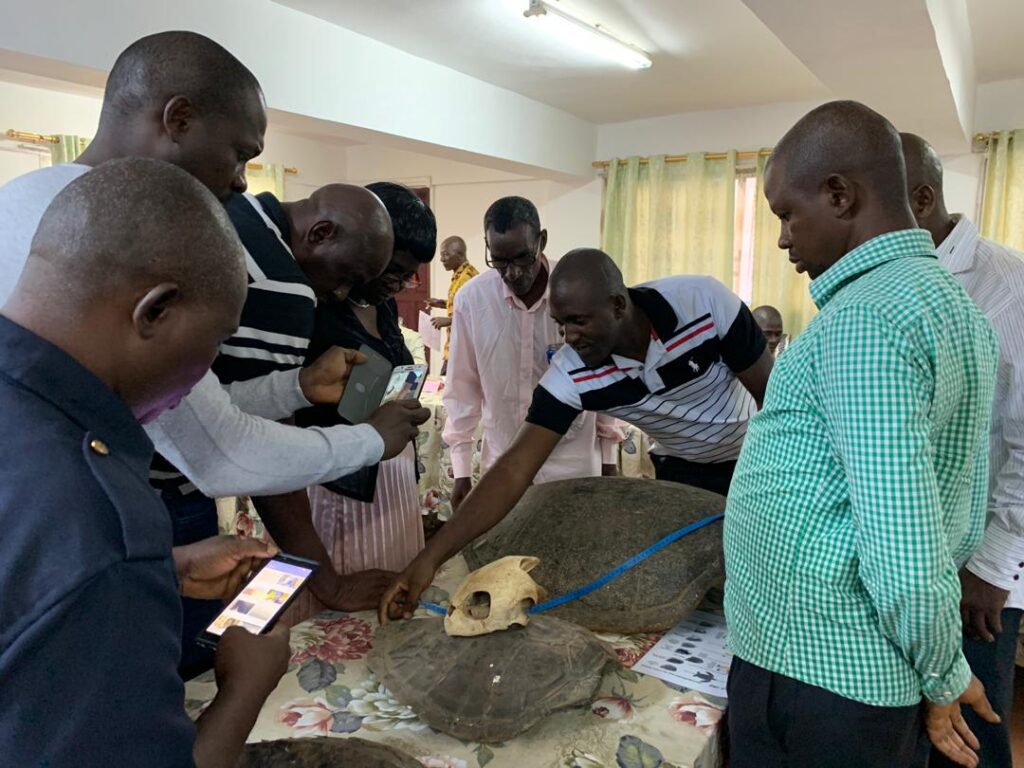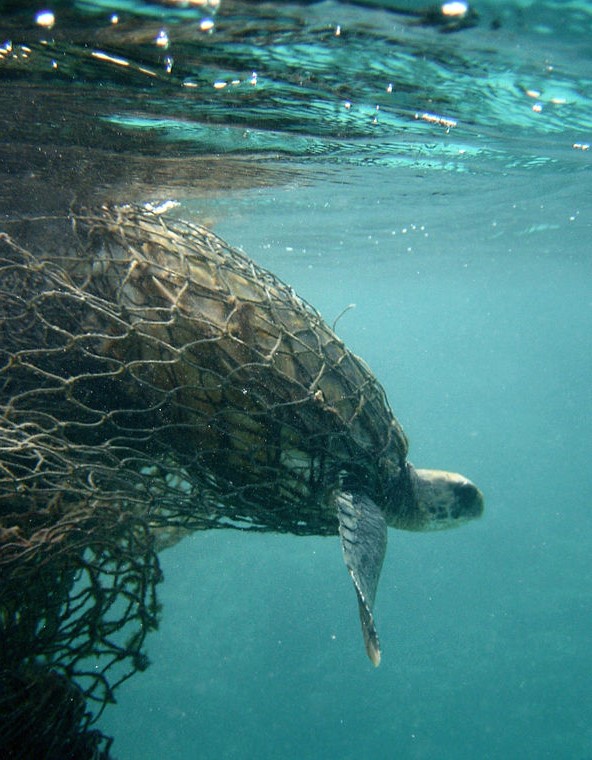Turtle Day: Shining the Spotlight on West Africa’s Disappearing Turtles

Poaching, accidental catches, pollution, plastics, infrastructure... At sea and on land, sea turtles face many threats. Celebration of the World Turtle Day on May 23 each year, reminds us the importance of protecting these wonderful creatures.
By Ahmed Diame
They are the custodians of our oceans, living witnesses of our seas history while contributing to their ecological balance.
Unfortunately, various scientific studies point to one thing: sea turtles are disappearing at an alarming rate. From the Indian Ocean to the Pacific to the Atlantic, populations of sea turtle have collapsed so rapidly that six of the seven sea turtle species in the world are now classified as Vulnerable, Endangered or Critically Endangered on the Red List of the International Union for the Conservation of Nature (IUCN).
Causes of this decline are diverse and include accidental catches during fishing activities; poaching; climate change; marine pollution; ecological disturbances linked to gas and oil activities and infrastructures development among others. According to the UN Food and Agriculture Organisation (FAO), incidental catch or bycatch resulting from fishing activities is the leading threat to sea turtles. It is estimated that more than 300,000 sea turtles are accidentally caught in the world’s fisheries each year.

In West Africa, all the five turtle species that we can find in this area are considered threatened in the IUCN Red List. Since November 2017, BirdLife International and the fisheries departments of Cabo Verde, The Gambia, Guinea, Guinea-Bissau, Mauritania, Senegal and Sierra Leone have been working in partnership with the French National Research Institute for Sustainable Development (IRD), the United Nations Convention on the Conservation of Migratory Species of Wild Animals (CMS), the Partnership for Coastal and Marine Conservation in West Africa (PRCM) and the United States National Oceanic and Atmospheric Administration (NOAA) to reduce incidental catches of sea turtles in industrial fisheries in West Africa.
In the past, systematic data collection on sea turtles bycatch was not integrated into the protocols of the different national observer programmes in the region. Consequently, there are huge gaps in available data. Supported by MAVA Foundation for Nature, the West Africa bycatch project and its partners are breaking new ground in sea turtle bycatch data collection.Thanks to the establishment of a regional network of well-trained observers in data collection protocols on sea turtles bycatch and species identification, the bycatch project is addressing this data gap challenge. “To date, 81 observers have been trained to collect seabirds and sea turtles bycatch data in different fisheries operating in West Africa’’, says Oumar Ba, sea turtle bycatch Instructor at BirdLife International. ‘’Our aim is to work with countries so that they are able to carry out this training at the national level’’, he adds.

Through this component, the foundation of a regional database on sea turtle bycatch in the region’s main industrial fisheries of the region is being laid, with preliminary data gathered by fisheries observers from the different countries confirming the bycatch trend in the region’s fisheries.
“In just a few weeks, 30 trained observers have already reported 39 sea turtles caught accidentally in different fisheries in Senegal, Guinea and Mauritania. In Senegal, over a period of 114 tidal days, two observers alone, reported 16 cases of incidental catches all involving sea turtles’’, concludes Ba.
In addition, the project is developing sea turtle distribution maps and identifying the different fishing hotspots in the areas. ‘’Once we get enough data from the observers, the next step will be to produce bycatch risk maps that will be important decision-making tools’’, states Dr. Yann Trambley from IRD who is leading the scientific research component of the project.
Collection of sea turtle bycatch data, is being carried out alongside advocacy work which is starting to bear fruits at national, regional and international levels. One of the outcomes of this advocacy work is the incorporation of a provision for the reduction of bycatch of sea turtles, by European vessels, in the new Sustainable Fisheries Partnership Agreement (SFPA) between Senegal and the European Union.
This signifies a modest step in the fight for the preservation of marine biodiversity in West Africa, but a giant step towards conserving these vulnerable species on which the ecological balance of our oceans depends on. Through multi stakeholder partnerships, it is hoped that conservation efforts to protect the threatened sea turtles population in the West Africa region will bear fruit, and as the world marks World Turtle Day, efforts will need to be doubled, to save these majestic creatures.



